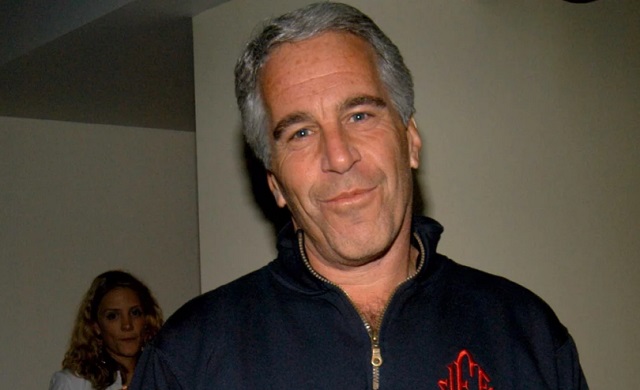Opinion
Olympics approves two men to box against women

From LifeSiteNews
The Olympic Committee approved two male boxers to fight as ‘women’ after previously failing gender tests and being disqualified for having male chromosomes: Lin Yu-Ting of Taiwan and Imane Khelif of Algeria.
“This is France!” Emmanuel Macron crowed on X as the Olympic Opening Ceremony in Paris unfolded. That, unfortunately, was what everyone was afraid of.
The ceremony featured a blasphemous representation of the Last Supper, featuring drag queens as the disciples and Barbara Butch, an overweight lesbian DJ, as the Lord Jesus Christ. The International Olympics Committee has already issued a pseudo-apology and deleted the video from its YouTube channel, but Butch was quite clear that this was a deliberate inversion.
There was more, but suffice it to say that after that ceremony, it is no surprise that the Olympic Committee has approved two male athletes to compete as “women” who were previously disqualified from the Women’s World Boxing Championships in March 2023 in New Delhi, India, for having “XY chromosomes”: Lin Yu-Ting of Taiwan and Imane Khelif of Algeria. At the time, president of the International Boxing Association (IBA) Umar Kremley announced that a number of boxers were being disqualified after “a series of DNA-tests” conducted “uncovered athletes who were trying to fool their colleagues and pretend to be women.”
IBA released a public statement announcing that “a boxer from Algeria, Imane Khelif, was excluded from the IBA World Boxing Championships due to the failure to meet the IBA eligibility criteria.” The Algerian Olympic Committee called the IBA’s decision a “conspiracy” to deny Algeria a gold medal and noted at the time that they hoped Khelif could fight in the Paris Olympics.
After the disqualification, Mexican boxer Brianda Tamara posted about her experience boxing Khelif at the championship on X. “When I fought with [him] I felt very out of my depth,” Tamara said. “[His] blows hurt me a lot, I don’t think I had ever felt like that in my 13 years as a boxer, nor in my sparring with men. Thank God that day I got out of the ring safely, and it’s good that they finally realized.” There are now serious concerns that female boxers could be injured by Khelif and Yu-Ting. Here is Khelif fighting in an earlier match—clearly far stronger than the opponent:
🚨Beating women is now a spectator sport
We have never been more aware as a society of male violence against women
Why are the #Olympics allowing this male to enter the boxing ring with a woman? #Paris2024 @fairplaywomen pic.twitter.com/I4gKzvigJt
— Katherine Deves Morgan 🇦🇺🚺 (@deves_katherine) July 30, 2024
Taiwan’s Lin Yu-Ting, who previously won five gold medals in women’s boxing tournaments, was also disqualified and stripped of a bronze medal. Now, at the Paris Olympics, Khelif is scheduled to fight Angela Carini of Italy on August 1, with Yu-Ting to be paired off with a female fighter the following day.
Marshi Smith of the Independent Council on Women’s Sports (ICONS) spoke with Reduxx about the issue:
The IOC’s decision to end sex-verification screening in 2000 has caused distrust and confusion in women’s sports ever since. Its 2021 decision to offload the responsibility for international eligibility criteria to individual sporting bodies has resulted in varied standards and widespread chaos among athletes, coaches, officials, and the public. In boxing, the recent contentious split between the IBA and the IOC has now placed Olympic eligibility power into the hands of national boxing federations, allowing countries like Algeria and Taiwan to set their own standards and continue placing male boxers in the ring with female athletes in combat for women’s Olympic medals.
This, said Smith, has led to a truly ugly scenario. “The physical abuse of women on an Olympic stage eliminates the integrity of all Olympic events and risks lifelong injury or even death for female athletes. This deceit cannot be allowed to continue.” A 2020 study by the University of Utah concluded that a man’s punch is, on average, about 160-170% more powerful than a woman’s punch.
espionage
Trump: “I HAVE JUST SIGNED THE BILL TO RELEASE THE EPSTEIN FILES!”

President Trump moved Wednesday to end years of secrecy surrounding one of the nation’s most notorious scandals, signing legislation that compels the Department of Justice to hand Congress virtually every scrap of material tied to Jeffrey Epstein. The president announced the move on Truth Social, writing, “I HAVE JUST SIGNED THE BILL TO RELEASE THE EPSTEIN FILES!”
Trump reminded supporters that he personally pressed House Speaker Mike Johnson and Senate Majority Leader John Thune to fast-track the legislation. “Because of this request, the votes were almost unanimous in favor of passage,” he wrote, pointing to the rare level of bipartisan agreement behind a bill that forces unprecedented transparency. The Epstein Files Transparency Act requires the DOJ to deliver all unclassified records — and as much classified material as possible — to Congress within 30 days. It also directs Attorney General Pam Bondi to provide lawmakers with a list of government officials and other “politically exposed persons” tied to Epstein within just 15 days.
The measure sailed through the House in a staggering 427–1 vote Tuesday before clearing the Senate unanimously. Its path to passage wasn’t always straightforward. For months, the Trump administration had sparred with lawmakers pushing for the release, with the president often calling the frenzy around “Epstein files” a Democrat-driven hoax designed to smear him.
In his Truth Social post, Trump leaned into the history, reminding Americans that Epstein “was charged by the Trump Justice Department in 2019 (Not the Democrats!)” and that the disgraced financier “was a lifelong Democrat” who poured money into Democrat campaigns. The president also pointed to Epstein’s well-documented relationships with high-profile Democrats, listing figures such as Bill Clinton — “who traveled on his plane 26 times” — former Treasury Secretary Larry Summers, activist billionaire Reid Hoffman, House Minority Leader Hakeem Jeffries, and Delegate Stacey Plaskett. “Perhaps the truth about these Democrats, and their associations with Jeffrey Epstein, will soon be revealed,” Trump wrote.
He added that the DOJ, under his direction, has already provided Congress nearly 50,000 pages of Epstein-related material — a stark contrast, he said, to the Biden administration, which “did not turn over a SINGLE file or page related to Democrat Epstein, nor did they ever even speak about him.”
For Trump, the transparency push is as much about exposing what Democrats don’t want voters to see as it is about delivering documents. He argued that the left had leaned on “the ‘Epstein’ issue” to distract from the “AMAZING Victories” of his administration. Now, with the bill signed and agencies under a firm deadline, he predicted the political tables are about to turn.
“This latest Hoax will backfire on the Democrats just as all of the rest have!” he wrote — a warning, and a promise, as Washington braces for whatever the next 30 days will reveal.
Business
Canada is failing dismally at our climate goals. We’re also ruining our economy.

From the Fraser Institute
By Annika Segelhorst and Elmira Aliakbari
Short-term climate pledges simply chase deadlines, not results
The annual meeting of the United Nations Conference of the Parties, or COP, which is dedicated to implementing international action on climate change, is now underway in Brazil. Like other signatories to the Paris Agreement, Canada is required to provide a progress update on our pledge to reduce greenhouse gas (GHG) emissions by 40 to 45 per cent below 2005 levels by 2030. After decades of massive government spending and heavy-handed regulations aimed at decarbonizing our economy, we’re far from achieving that goal. It’s time for Canada to move past arbitrary short-term goals and deadlines, and instead focus on more effective ways to support climate objectives.
Since signing the Paris Agreement in 2015, the federal government has introduced dozens of measures intended to reduce Canada’s carbon emissions, including more than $150 billion in “green economy” spending, the national carbon tax, the arbitrary cap on emissions imposed exclusively on the oil and gas sector, stronger energy efficiency requirements for buildings and automobiles, electric vehicle mandates, and stricter methane regulations for the oil and gas industry.
Recent estimates show that achieving the federal government’s target will impose significant costs on Canadians, including 164,000 job losses and a reduction in economic output of 6.2 per cent by 2030 (compared to a scenario where we don’t have these measures in place). For Canadian workers, this means losing $6,700 (each, on average) annually by 2030.
Yet even with all these costly measures, Canada will only achieve 57 per cent of its goal for emissions reductions. Several studies have already confirmed that Canada, despite massive green spending and heavy-handed regulations to decarbonize the economy over the past decade, remains off track to meet its 2030 emission reduction target.
And even if Canada somehow met its costly and stringent emission reduction target, the impact on the Earth’s climate would be minimal. Canada accounts for less than 2 per cent of global emissions, and that share is projected to fall as developing countries consume increasing quantities of energy to support rising living standards. In 2025, according to the International Energy Agency (IEA), emerging and developing economies are driving 80 per cent of the growth in global energy demand. Further, IEA projects that fossil fuels will remain foundational to the global energy mix for decades, especially in developing economies. This means that even if Canada were to aggressively pursue short-term emission reductions and all the economic costs it would imposes on Canadians, the overall climate results would be negligible.
Rather than focusing on arbitrary deadline-contingent pledges to reduce Canadian emissions, we should shift our focus to think about how we can lower global GHG emissions. A recent study showed that doubling Canada’s production of liquefied natural gas and exporting to Asia to displace an equivalent amount of coal could lower global GHG emissions by about 1.7 per cent or about 630 million tonnes of GHG emissions. For reference, that’s the equivalent to nearly 90 per cent of Canada’s annual GHG emissions. This type of approach reflects Canada’s existing strength as an energy producer and would address the fastest-growing sources of emissions, namely developing countries.
As the 2030 deadline grows closer, even top climate advocates are starting to emphasize a more pragmatic approach to climate action. In a recent memo, Bill Gates warned that unfounded climate pessimism “is causing much of the climate community to focus too much on near-term emissions goals, and it’s diverting resources from the most effective things we should be doing to improve life in a warming world.” Even within the federal ministry of Environment and Climate Change, the tone is shifting. Despite the 2030 emissions goal having been a hallmark of Canadian climate policy in recent years, in a recent interview, Minister Julie Dabrusin declined to affirm that the 2030 targets remain feasible.
Instead of scrambling to satisfy short-term national emissions limits, governments in Canada should prioritize strategies that will reduce global emissions where they’re growing the fastest.

Elmira Aliakbari
-

 Carbon Tax2 days ago
Carbon Tax2 days agoCarney fails to undo Trudeau’s devastating energy policies
-

 Alberta2 days ago
Alberta2 days agoAlbertans choose new licence plate design with the “Strong and Free” motto
-

 Health2 days ago
Health2 days agoNEW STUDY: Infant Vaccine “Intensity” Strongly Predicts Autism Rates Worldwide
-

 Alberta2 days ago
Alberta2 days agoEdmonton and Red Deer to Host 2027 IIHF World Junior Hockey Championship
-

 Business1 day ago
Business1 day agoNearly One-Quarter of Consumer-Goods Firms Preparing to Exit Canada, Industry CEO Warns Parliament
-

 Daily Caller1 day ago
Daily Caller1 day agoDemocrats Explicitly Tell Spy Agencies, Military To Disobey Trump
-

 Energy21 hours ago
Energy21 hours agoCarney bets on LNG, Alberta doubles down on oil
-

 Addictions2 days ago
Addictions2 days agoActivists Claim Dealers Can Fix Canada’s Drug Problem








